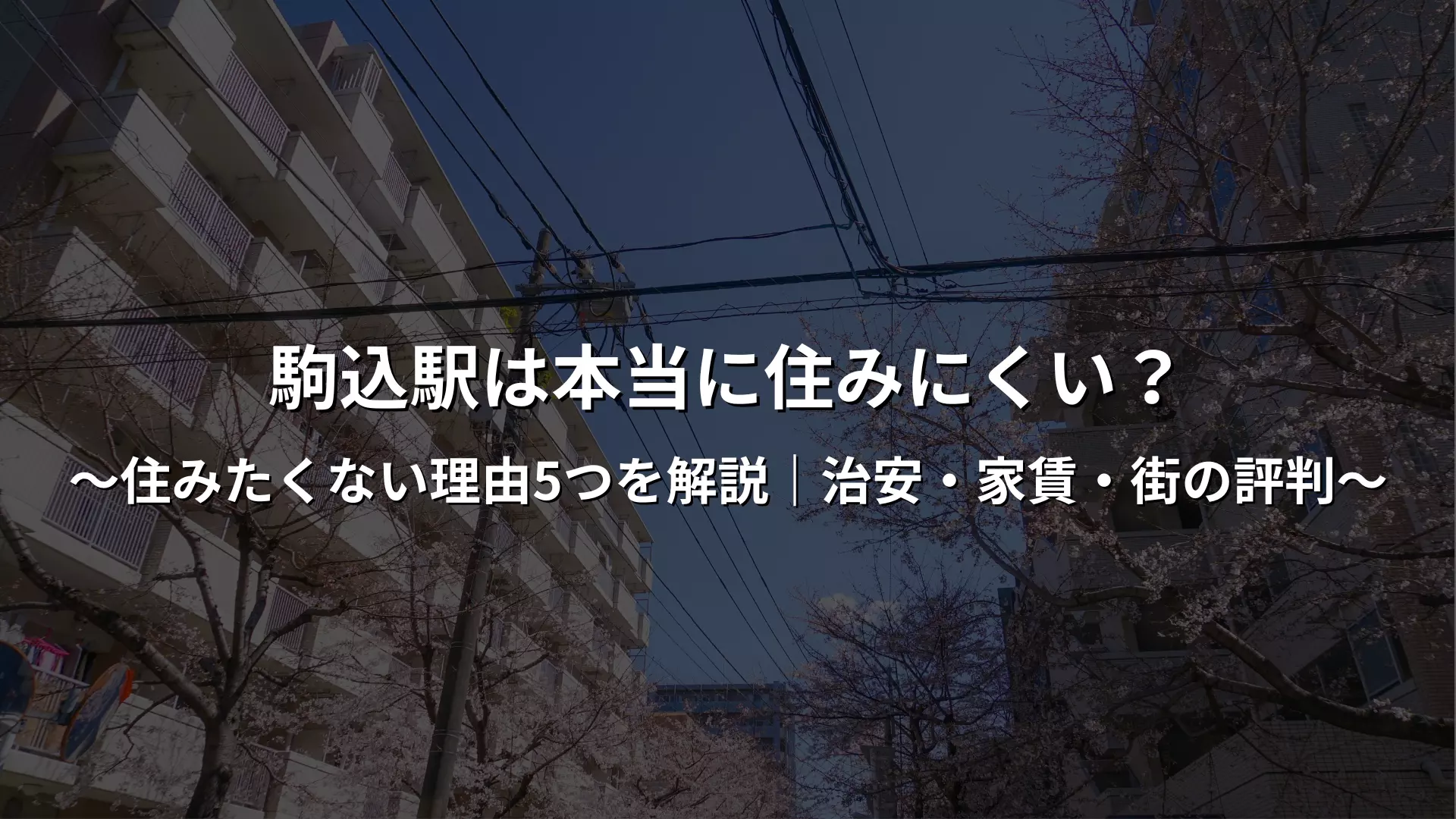Average utility costs for university students living alone
For university students living alone, utility bills are a monthly expense, along with rent and food costs. Utility bills are primarily the sum of electricity, gas, and water bills, and even among living expenses, the amount fluctuates greatly depending on the season and the condition of the property. Gas bills for heating and hot water are particularly high in the winter, while electricity bills tend to be higher in the summer due to air conditioning. Costs also vary greatly depending on whether you use city gas or propane gas, and regional differences cannot be ignored.
Here we will explain in detail how much students living alone actually pay in utility bills, including average amounts, seasonal fluctuations, and regional differences.
Average utility costs (monthly/yearly) for students living alone
The average monthly utility bill for a university student living alone is around 8,000 to 15,000 yen. This amounts to about 100,000 to 180,000 yen per year, making up a significant portion of living expenses. This is the total for electricity, gas, and water, and will fluctuate depending on the season. Costs will also vary depending on how often you cook and take baths, and how much time you use the internet and home appliances.
Some student dormitories have rents that include utilities, but when it comes to renting a property, the monthly bill directly affects your household budget. Rent is particularly high in urban areas, and adding utility fees on top of that can increase your overall living expenses, so you need to plan your monthly budget.
Average electricity bill and seasonal fluctuations
The average electricity bill for a student living alone is around 3,000 to 6,000 yen per month. In the summer, air conditioning use can average over 5,000 yen, and in the winter it also increases due to increased heating and lighting hours. Especially with online classes and a lifestyle where you spend long periods at home, you will be using your computer and lights for longer periods, which will increase your annual electricity bill. Continuing to use old appliances or high-ampere contracts can also be a factor in higher costs.
By reviewing your electricity provider and plan, you may be able to save anywhere from several thousand yen to over 10,000 yen per year. Understanding your seasonal consumption patterns and striving to use electricity efficiently will lead to savings.
Average gas bills and differences based on usage
The average gas bill for a university student living alone is around 2,500 to 6,000 yen per month. In winter, people use hot water and baths more frequently, so gas bills are higher, especially if they soak in the bathtub every day. Also, those who cook their own meals using a gas stove tend to see higher costs. Properties with city gas are relatively cheap, while properties with propane gas can be more than 1.5 times more expensive for the same amount of usage.
When searching for a property, it is important to check not only the rent but also the type of gas used. You can reduce your gas bill by lowering the hot water temperature or taking baths at the same time.
Average water bill and payment cycle
The average monthly water bill for a student living alone is around 1,500 to 3,000 yen. Most municipalities charge bills every two months, so the actual bill will be around 3,000 to 6,000 yen. This will vary depending on how long you shower or bathe, and how often you do laundry, and tends to be higher if you cook at home and do a lot of washing.
Also, while it's harder to see the savings on water bills compared to electricity and gas, you can reduce them by making small improvements to your daily habits. For example, shortening your shower time, washing dishes together, and doing laundry all at once are effective. Managing your water bill is also important for reducing your overall utility costs.
Price differences between city gas and propane gas by region
Among utility costs, gas prices vary greatly depending on the region and type of gas. City gas is a relatively stable utility rate, and the price per cubic meter is low. On the other hand, propane gas is priced at a discretionary rate, and can cost 1.5 to 2 times as much as city gas for the same amount of usage.
Properties in rural areas and suburban areas often use propane gas, and many of them are used by students. Electricity and water rates also vary by region. When searching for a property, checking not only the rent but also the utility bills and comparing the long-term costs is a key factor in living cheaply.
Percentage of utility costs in total living expenses
When a university student lives alone, their monthly living expenses consist of multiple items, including rent, food, communication costs, and utility bills. Utility bills are essential to daily life, and although they are smaller than rent and food, they can still be a significant annual expense. Electricity, gas, and water bills in particular fluctuate depending on the season and lifestyle habits, making them the easiest fixed expenses to manage. The proportion of utility bills also varies depending on the property you live in, whether it's a student dormitory or a rented apartment. Furthermore, your lifestyle, such as whether you cook at home or eat out, will also affect your utility bills.
Here we will explain what proportion utility bills make up in your overall living expenses and how to strike a balance.
Balancing rent, food, and communication costs
When looking at the breakdown of living expenses for a university student living alone, rent is the largest, often accounting for over 50% of the total on average. Next is food, at around 20-25%, communication costs (smartphone and internet) at around 5-10%, and utilities at roughly 10%. However, gas and electricity bills tend to be higher in the winter, and the proportion of utilities tends to rise. Living in a property with low rent means more money can be spent on utilities and food, but conversely, high rent means you have to cut back on other expenses.
If you are thinking about saving money, it is important to regularly review the balance between fixed expenses such as rent and utilities, and variable expenses such as food. Using a household accounting app makes it easier to understand the monthly expenditure ratios.
Comparing utility costs between student dormitories and rental apartments
The handling of utility costs is very different between student dormitories and rental apartments. In student dormitories, electricity, gas, and water are often included in the rent, which has the advantage of making it easier to stabilize monthly living expenses. On the other hand, utility costs are charged separately in rental apartments, so monthly costs fluctuate depending on the season and lifestyle. Gas bills tend to be particularly high in propane gas properties in the winter, which can result in a large annual cost burden. Also, in dormitories, shared facilities are often used, so individual usage is kept to a minimum, but in rental properties, your lifestyle habits are directly reflected in the cost.
When looking for a property, checking not only the rent but also whether utilities are included or not, and the type of gas used will help you save money.
Changes in utility costs due to differences between cooking at home and eating out
For university students living alone, the choice of whether to cook at home or eat out also affects utility bills. Cooking at home tends to increase gas and electricity bills, especially if you frequently use a gas stove or microwave. On the other hand, if you mainly eat out, utility bills will be lower, but food costs will be higher.
Cooking at home can help you save on overall living expenses if you can keep ingredient costs low, but depending on how often you cook and how you do it, gas and electricity bills can become significant. People who cook at home can maintain a healthy diet while keeping utility bills down by cooking in bulk and freezing food, or using a microwave to shorten heating times. It is important to consider the overall balance of living expenses and manage both food and utility costs.
Search from 6,613 rooms of 973 properties
Reasons for high energy bills for university students
For university students living alone, utility bills are one of the most variable monthly living expenses. Electricity, gas, and water bills, in particular, fluctuate greatly depending on the season and lifestyle habits. Electricity and gas bills increase in summer and winter due to the use of heating and cooling, and utility bills also increase due to extended periods of time spent at home or online classes. Continuing to use old appliances or inefficient equipment can also result in unnecessary costs. Furthermore, if your rental property uses propane gas, the bill can be significantly higher than city gas, even for the same amount of usage.
Here we take a closer look at the main reasons why college students have high energy bills.
Seasonal increase in air conditioning and heating use
One of the biggest factors in high utility bills is seasonal use of heating and cooling. In the summer, electricity bills rise due to air conditioning cooling operation, and can average over 5,000 yen, especially from July to September. In the winter, gas bills rise for heating and hot water, and together with electricity bills, they make up a large proportion of overall utility bills. If you use an air conditioner for heating, your electricity bill will increase, and if you use a gas fan heater or hot water frequently, your gas bill will increase. Additionally, certain usage methods, such as setting the temperature higher or leaving it on for long periods of time, can further increase costs.
Reviewing your usage times in summer and winter and adjusting the temperature settings and clothing you wear will directly lead to savings on utility bills.
The impact of long hours of home and online classes
University students' lifestyles also have a significant impact on their utility bills. Online classes and long hours at home in particular mean that computers, lights, and air conditioners run longer, driving up electricity bills. Spending longer periods at home means more use of lights, even during the day, and it's not uncommon for heating and cooling systems to run all day. Students also often keep windows closed during online classes to maintain a quiet environment, resulting in longer air conditioning usage. Furthermore, students are cooking and boiling tea more frequently, which impacts their gas and water bills.
To keep living expenses down, it is important to be conscious of how you use appliances and temperature settings while at home.
Use of old appliances and inefficient equipment
Older appliances and less energy-efficient equipment consume more electricity and gas even when used for the same amount of time, resulting in higher utility bills. Old refrigerators, air conditioners, and lighting fixtures in particular have a direct impact on your electricity bill. Also, older water heaters are less efficient and may use more gas to heat water to the same temperature.
Rental properties for students are often older and do not have the latest energy-saving equipment, so it is important to check the equipment status before moving in. By switching to energy-efficient appliances and LED lighting, you can save several thousand yen to over 10,000 yen per year. If you plan to live in the property long-term, try to think of purchasing appliances as an investment to reduce your living expenses.
Rate increase due to propane gas properties
If your rental property uses propane gas, your gas bill may be significantly higher than city gas. Because propane gas has a flexible pricing system, it is not uncommon for the same amount of gas to cost 1.5 to 2 times as much. In particular, in winter, when usage increases for hot water and heating, some students' monthly gas bills exceed 10,000 yen.
Properties in rural and suburban areas tend to use propane gas, and as a result of being attracted by the low rent and signing a contract, utility bills can be high. When looking for a property, it is important to check not only the rent but also the type of gas and its unit price in advance. In order to keep long-term living costs low, properties that use city gas are often more advantageous.
How to save on utility bills even as a college student
For university students living alone, utility bills are one item of monthly living expenses that can be reduced with some ingenuity. Electricity, gas, and water bills can be reduced simply by reviewing how you use each, and it's possible to save anywhere from a few thousand yen to over 10,000 yen per year. In particular, daily habits can change how you use electrical appliances such as air conditioners, lighting, and refrigerators, gas for hot water and cooking, and water for showers and laundry. Other effective ways to reduce your energy bills include reviewing your contract plan and electricity and gas companies, and using energy-efficient appliances and water-saving products.
Here we will introduce specific ways to save on utility bills that even college students can easily get started on.
Energy-saving techniques to reduce electricity bills (air conditioners, lighting, refrigerators, etc.)
The key to reducing your electricity bill is to improve usage time and efficiency. Keeping the air conditioner set temperature at around 28°C in summer and 20°C in winter, and using a circulator in combination, will help reduce power consumption. Switch to LED lighting and get into the habit of turning off lights in rooms where you don't need them. Not overfilling your refrigerator will increase cooling efficiency and lead to lower electricity bills.
Additionally, standby power consumption can waste hundreds to thousands of yen per year, so it's a good idea to unplug appliances that you're not using. Even when you're taking online classes or staying at home for long periods of time, try using only the appliances you need to reduce your overall utility bills.
Tips for saving on gas bills (reviewing hot water temperature and cooking methods)
To reduce gas bills, it is essential to be creative with your hot water supply and cooking. Don't make the hot water temperature any higher than necessary; although this varies from person to person, a temperature of around 40°C is often sufficient even in winter. You can significantly reduce your gas bill by choosing to shower on certain days rather than filling the bathtub every day. When cooking at home, you can reduce gas usage by using a heat level that matches the base of your pots and pans, and by covering the pots to shorten cooking times. Using a microwave or electric kettle to shorten heating times is also effective.
Propane gas properties in particular have high unit prices, so these measures could potentially save you thousands of yen per year.
Water-saving tips to reduce your water bill (reducing shower time, dishwashing methods)
Water bills may seem small at first glance, but they can definitely be reduced by improving your habits. A shower uses about 12 liters of water per minute, so shortening the shower time by just five minutes will result in significant water savings. When washing dishes, you can avoid leaving them running by applying detergent and then rinsing them all at once. When doing laundry, it is best to do the laundry in bulk, and if possible, reusing leftover bath water is even more effective.
If you're renting, consider installing water-saving shower heads and faucet adapters, which are available at low cost. By making these small improvements, you can save money on your electricity and gas bills, and keep your overall living expenses low.
Reviewing contract plans, electricity companies, and gas companies
Changing your contract plan or supplier is also an effective way to fundamentally review your utility bills. You can reduce your electricity bill by adjusting the amperage and rate plan to suit your lifestyle. For example, students who spend little time at home would benefit from switching to a plan with a lower basic fee. You can also compare annual costs for gas, both city gas and propane, by getting quotes from multiple companies. The price difference is particularly large for propane gas, and you may be able to save more than 10% by negotiating or switching.
When moving or searching for a property, you can keep your long-term living expenses low by checking not only the rent but also the utility costs.
Use of energy-saving appliances and water-saving products
Introducing energy-saving appliances and water-saving products is a way to reduce utility bills in the long term, even if it involves an initial cost. The latest air conditioners, refrigerators, and washing machines consume little power, allowing you to significantly reduce your annual electricity bill. Simply switching to LED lighting can extend its lifespan and halve power consumption. Water-saving shower heads, faucets with flow control, and water-saving hoses for washing machines are effective ways to reduce your water bill. When purchasing, be sure to check for "energy-saving labels" and "water-saving performance indications."
Such capital investments have the effect of reducing utility bills without reducing quality of life, and even students can easily put them into practice.
Search from 6,613 rooms of 973 properties
Tips for managing and saving on utility bills
For university students living alone, utility bills are a fixed monthly expense, but depending on how you manage them, you can make significant savings. Rather than simply paying your electricity, gas, and water bills, understanding monthly usage and fluctuations in fees can help you identify wasteful spending and ways to save money. Since utility costs change with the seasons, it's important to create savings plans tailored to summer and winter. Furthermore, by taking advantage of cashless payment methods and reward points, you can not only reduce the amount you pay, but also get great savings from your payments.
Here we will introduce tips for managing and saving on utility bills that even college students can put into practice right away.
Keep track of your monthly utility bills with a household accounting app
The first step to effectively saving on utility bills is to visualize your monthly spending. By using a household accounting app, you can record your electricity, gas, and water bills by item, and easily compare monthly amounts and check the average annual amount.
For university students living alone, in particular, utility bills are likely to fluctuate due to changes in lifestyle, so it's important to accumulate data and understand trends. Some apps automatically link with bank accounts and credit cards to import payment data, making it easy to record. By developing these management habits, you can clarify the causes of wasteful spending and take appropriate measures to save money.
Create a seasonal savings plan
Utility costs vary greatly depending on the season, so it's effective to make a savings plan in advance. Electricity bills for air conditioning tend to be higher in the summer, while gas bills for heating and hot water tend to be higher in the winter. For example, set the temperature to 28°C in the summer and use a fan or circulator in combination, or dress warmer and lower the heating setting in the winter, and take baths all at once. Decide in advance what you will do for each season.
It is effective to refer to past utility bill data using a household accounting app and set a goal of lowering your bills compared to the same month last year. This kind of planned savings will lead to sustainable lifestyle habits, rather than temporary sacrifices.
Point rewards and cashless payments
You can save money annually just by being creative with how you pay your utility bills. Using cashless methods such as credit card payments or QR code payments will earn you reward points, resulting in substantial savings. For example, if you pay 150,000 yen in utility bills per year with a card that offers a 1% reward rate, you'll earn 1,500 yen worth of points. What's more, some electric and gas companies offer additional points or discounts when using certain payment methods.
Many student cards have no annual fee, and if you use them in conjunction with everyday purchases, it's easier to accumulate points. Being creative with your payments is one way to save money that you can continue without difficulty.
Summary: College students living alone can save on utility bills if they use ingenuity
The average monthly utility bill for a university student living alone is around 8,000 to 15,000 yen, but this can vary greatly depending on the season and lifestyle. By reviewing your electricity, gas, and water usage and using energy-efficient appliances and water-saving products, you can save anywhere from a few thousand yen to over 10,000 yen per year. Checking your contract plan and property conditions is also an effective way to reduce your living expenses in the long term.
By improving your daily habits and managing your home in a planned manner, you can keep your utility bills down and maintain a comfortable life living alone.































